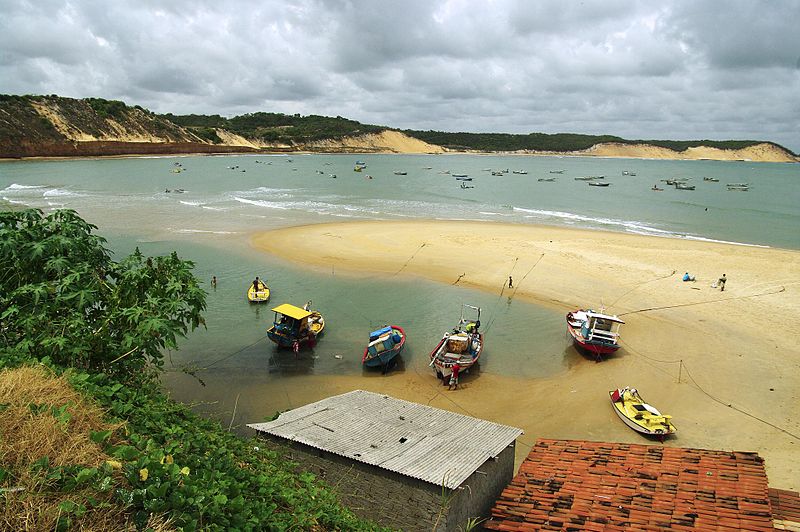
Baía Formosa, Rio Grande do Norte state, Brazil. Photocredit: Otávio Nogueira.
Small-scale fisheries are important for livelihood in communities, providing jobs and food security to local inhabitants, but their contributions are poorly documented. A new study looks at how modelling can track the benefits provided by a fishery by following the people and activities involved in fish production.
The study measured the contributions of a small-scale fishery in the Baía Formosa area of the Rio Grande do Norte State, Brazil, to its local inhabitants. The researchers tracked the benefits that were created by the fishery, and what role it played for income generation and food security at the local level.
“We need to understand the importance of fisheries for communities, supporting food security and employment, and that doesn’t stop when the fish are landed at a port. We need to follow the fish from sea to plate,” said Dr. Villy Christensen, one of the study’s authors, professor at the Institute for the Oceans and Fisheries and principal investigator in the Global Ocean Modelling unit. Along with professor emeritus Carl Walters and other fisheries scientists, Christensen helped develop the value chain methodology along with the modelling software used in the study, Ecopath with Ecosim (EwE).
To do this, the researchers followed the journey of a fish through its fish value chain using the EwE modelling software. Following the fish value chain involves tracking the activities, processes, and people involved in turning the raw fish caught by a fisher into the final fish product purchased by a consumer. The researchers then examined the benefits created by different levels of the value chain, including what kinds of jobs were created by the fishery, whether the fish caught were mostly eaten by local people or tourists, and other information relevant to understanding the role of the fishery in the community.
The researchers found that the small-scale fishery played a crucial role for the local inhabitants, providing a means for subsistence, food security and employment opportunities.
The researchers found that the small-scale fishery played a crucial role for the local inhabitants, providing a means for subsistence, food security and employment opportunities.
Most fish caught by the fishery were sold at the local marketplace or eaten by the fishers themselves rather than purchased by tourists, which establishes the local importance of the fishery as a means for subsistence and food security. In fact, nearly all of the catches – 94 per cent – were consumed by locals and fishers’ households, contributing to a substantial flow of 18.7 million USD per year into the local economy. Since most fishers were also eating their own catch, they also avoided the cost of buying other sources of protein, which produced average subsistence earnings that put them above the poverty line threshold for fishers.
In addition to its contributions to income, the researchers found that fishery also created employment opportunities beyond the fishers themselves. For every fisher there were two people working on land, mostly in restaurants and street markets, where one third of the employees were women. Restaurants also played a large role in the local economy, as they generated 35 per cent of the jobs and 23 per cent of the revenue from only 5 per cent of fish production.
Since the fishery plays such an integral role in the lives of Rio Grande do Norte fishers and local inhabitants, changes to the fish value chain can affect the community’s well-being, and increase its vulnerability and susceptibility to poverty.
In order to predict how conservation policies might affect fishery-dependent communities, the researchers argued that policy-makers and managers must first understand the contributions of fisheries and different aspects of the fish value chain. That way, they say, policies that benefit both people and the environment can be effectively put in place.
The study “Following the Fish: The Role of Subsistence in a Fish-based Value Chain” was published in the journal Ecological Economics.
Tags: Carl Walters, faculty, food security, Modelling, Research, supply chain, Villy Christensen